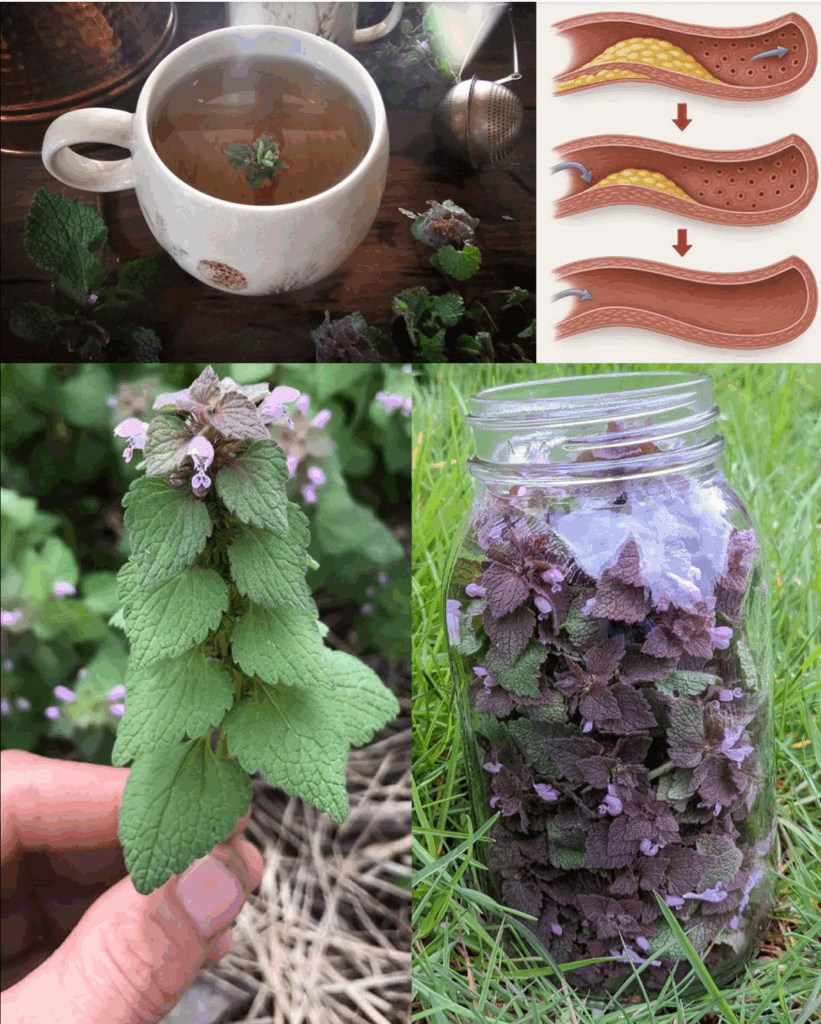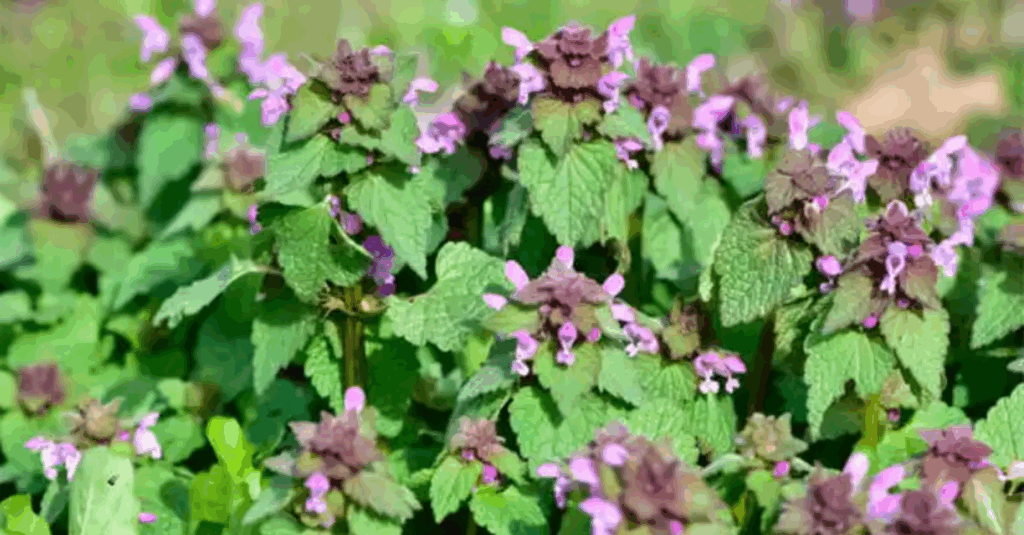A Wild Ally for Circulation and Heart Health
Often found creeping along garden borders and fields, purple dead nettle might be dismissed as just another common weed—but don’t be fooled. This humble wild plant hides incredible potential for those seeking natural ways
to support their circulatory system and maintain healthy cholesterol levels. A member of the mint family, purple dead nettle is packed with antioxidants, anti-inflammatory properties, and essential nutrients, making it a fantastic addition to your heart-health routine.
Let’s dive into how this underrated herb can help improve blood flow, strengthen blood vessels, regulate cholesterol, and more—and how you can easily incorporate it into your daily wellness practices.
Top Benefits of Purple Dead Nettle for Heart and Circulatory Health

1. Boosts Healthy Blood Circulation: Purple dead nettle supports better blood flow throughout the body by reducing internal inflammation and encouraging more flexible, responsive blood vessels.
This not only helps alleviate pressure on the heart but also enhances oxygen delivery to your tissues, promoting overall vitality.
2. Regulates Cholesterol Levels: While it’s not a substitute for medication, purple dead nettle can play a supportive role in maintaining balanced cholesterol. Its antioxidants help protect your blood vessels from oxidative damage,
one of the key contributors to cholesterol buildup and artery hardening.
3. Strengthens Blood Vessels: Rich in flavonoids and polyphenols, purple dead nettle strengthens the walls of your blood vessels, reduces stiffness, and helps maintain vascular elasticity. These benefits
contribute to normal blood pressure levels and reduce the risk of cardiovascular strain over time.
4. Fights Oxidative Stress: The antioxidants in purple dead nettle—such as quercetin, vitamin C, and other powerful plant compounds—neutralize free radicals, preventing them from causing damage to your circulatory system.

This helps protect your heart and may also reduce the negative impact of stress, poor diet, and environmental toxins on your health.
5. Natural Anti-Inflammatory Properties: Chronic inflammation is a major contributor to heart disease and high blood pressure. Purple dead nettle’s mild anti-inflammatory compounds work to calm internal irritation, fostering a healthier cardiovascular system over time.
How to Use Purple Dead Nettle for Maximum Benefit
1. Tea (Best for Daily Use): For a daily circulation boost, add 1–2 teaspoons of dried purple dead nettle (or a handful of fresh leaves) to hot water. Let it steep for 10–15 minutes, then sip 1–2 times a day to enjoy its antioxidant protection and circulatory benefits.
2. Smoothie Ingredient (Raw Nutrient Boost): Harvest fresh, young leaves and blend them into a green smoothie. This method preserves the plant’s vitamin C and flavonoids, giving you a raw nutrient-packed boost with every sip.
3. Powder (For Consistent Daily Supplementation): Dry the leaves completely, grind them into a fine powder, and add about ½ teaspoon to your food or capsules. This is a great option if you prefer a consistent way to support your health without having to brew tea.
4. Tincture (Fast-Acting Absorption): Take 30–40 drops of tincture in water up to three times a day for rapid absorption. This form is ideal if you need immediate support for circulation or immune balance.

Safety and Considerations: Purple dead nettle is generally safe when used in moderation, but there are a few things to keep in mind: Always harvest from clean, pesticide-free areas to avoid contamination.
If pregnant or nursing, it’s best to consult a healthcare professional before using purple dead nettle. Those with sensitivities to mint-family plants should use caution.
Purple dead nettle may grow unnoticed in your garden or along the edges of fields, but its potential for supporting heart health, improving circulation, and maintaining cholesterol balance is undeniable.
Whether enjoyed as a soothing tea, added to your daily smoothie, or taken as a powder or tincture, it’s a simple, natural way to nourish your cardiovascular system and reduce internal inflammation.
Disclaimer: This article is for informational purposes only. Always consult a healthcare provider before using herbs, especially if you are on medication or managing a medical condition.


